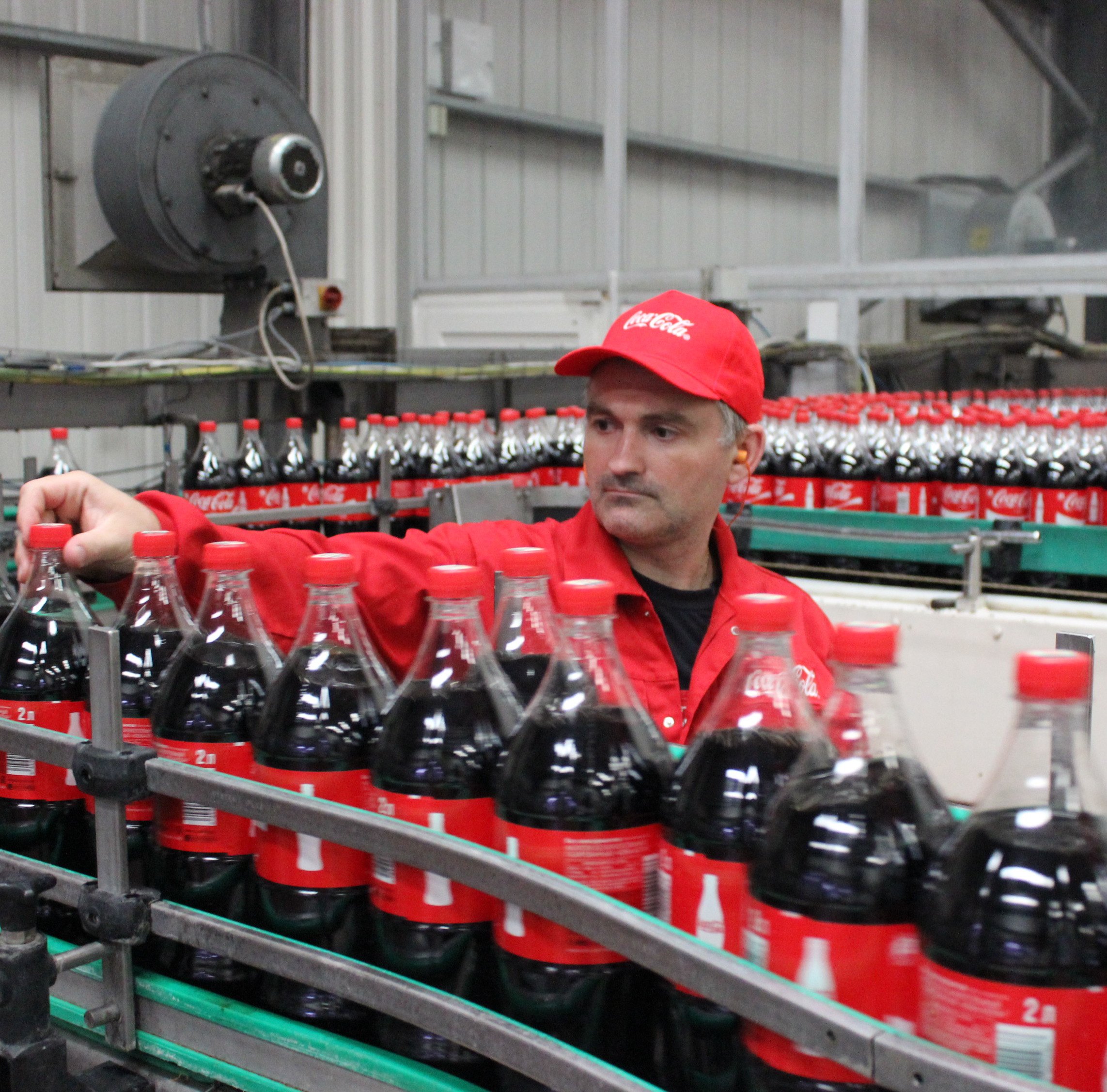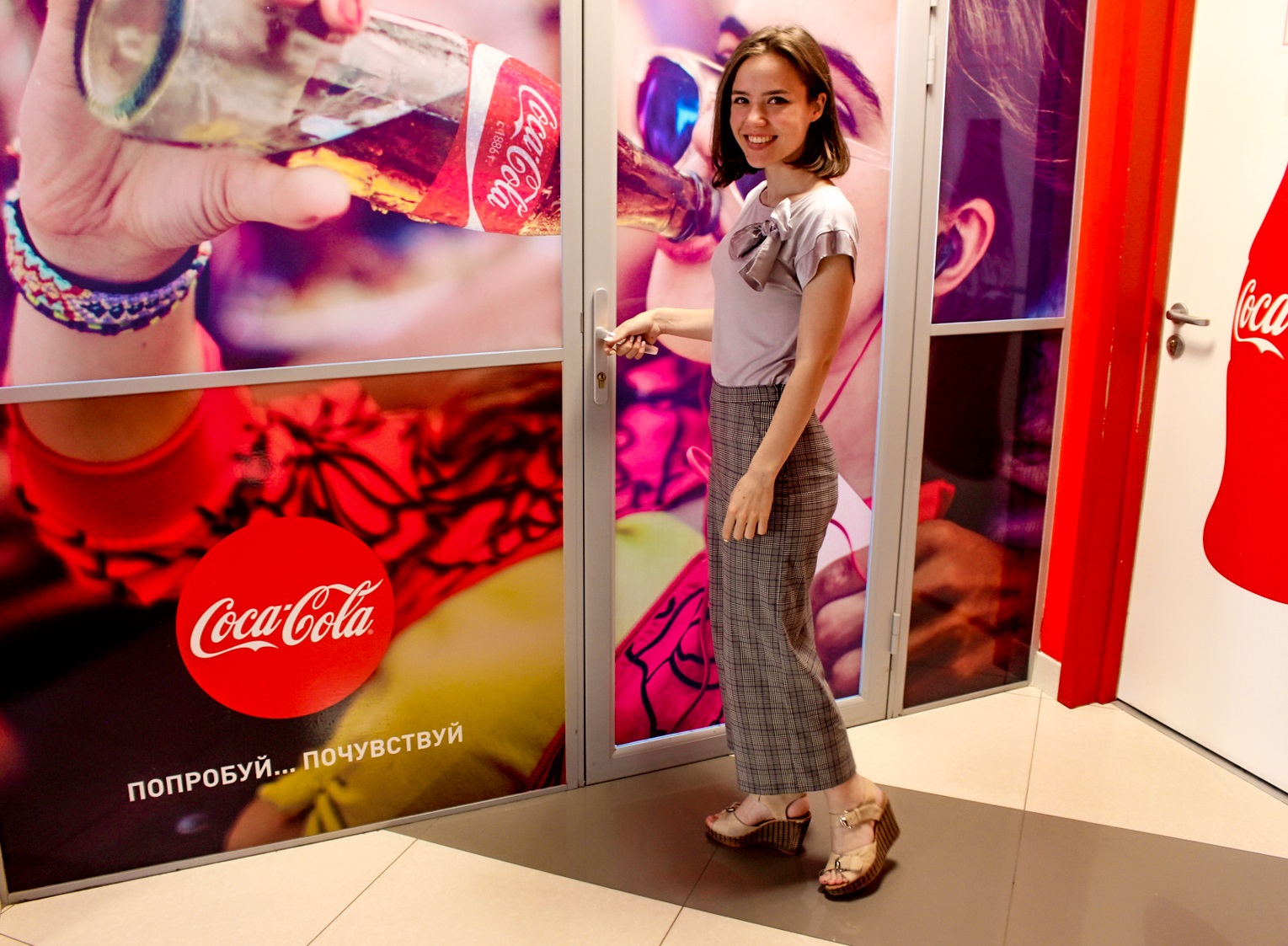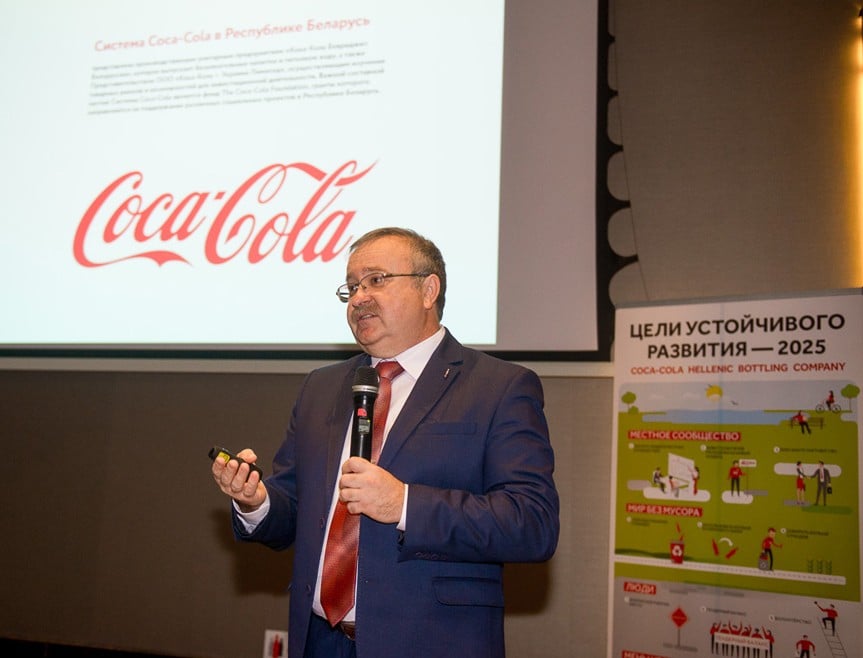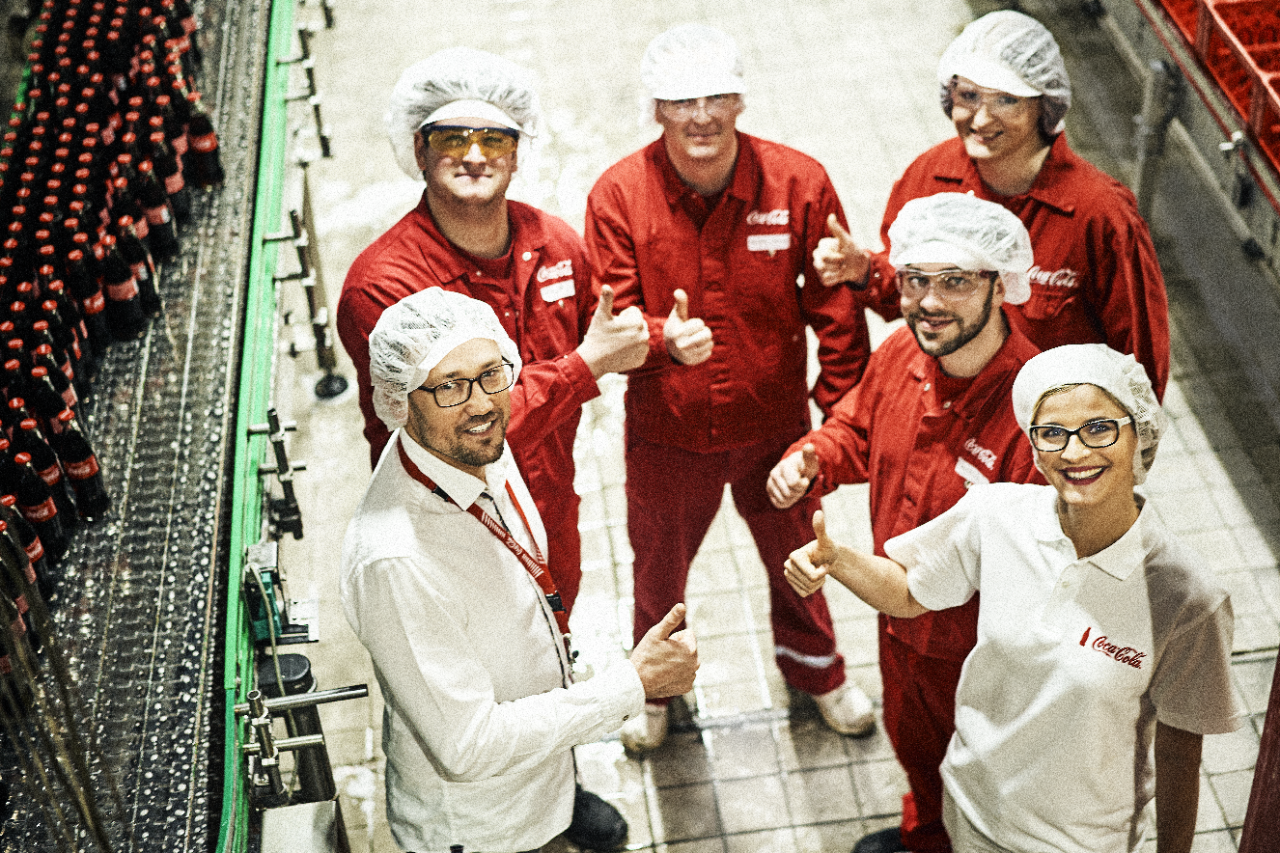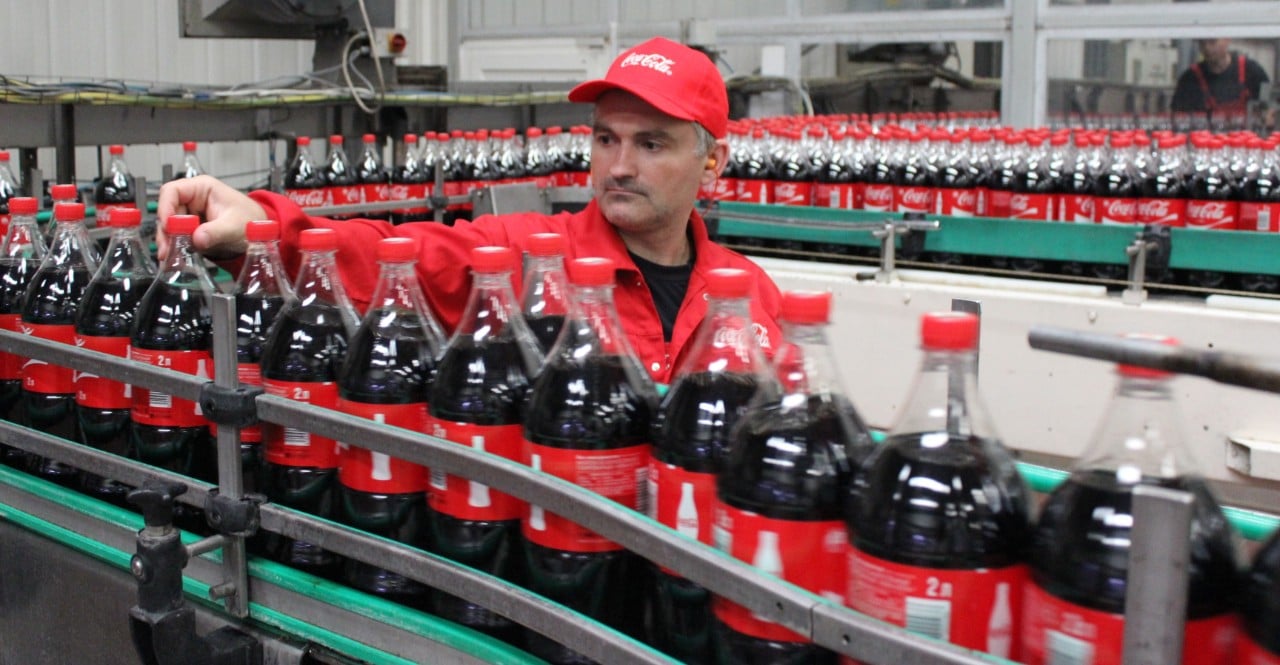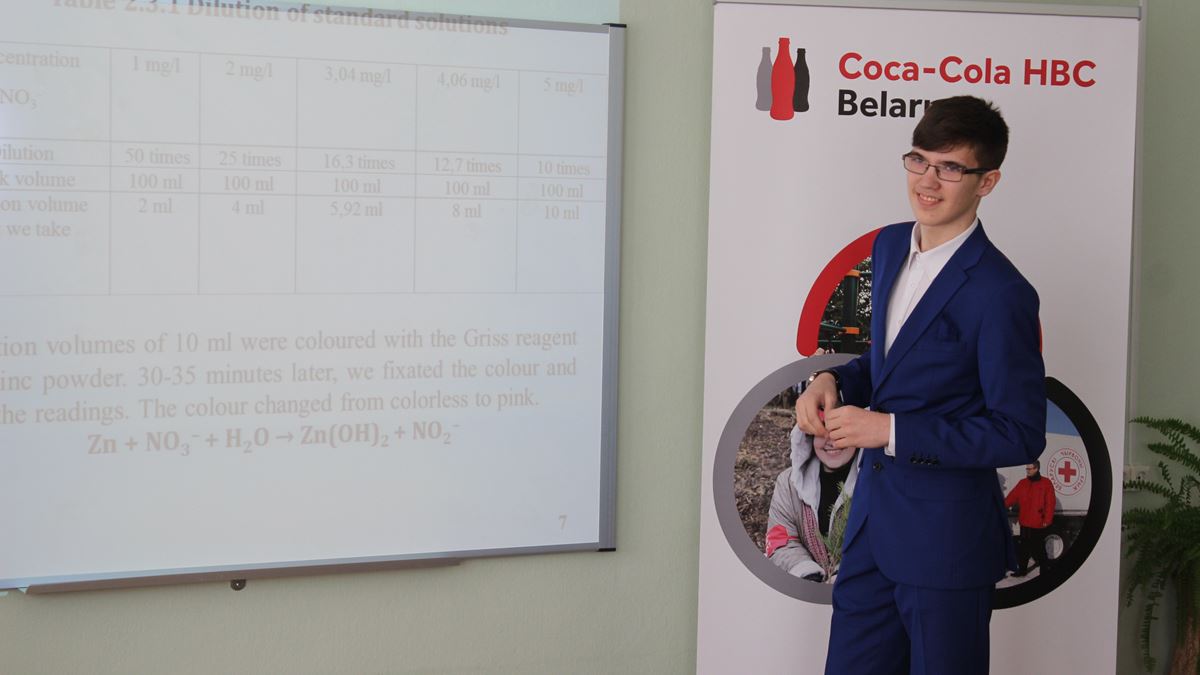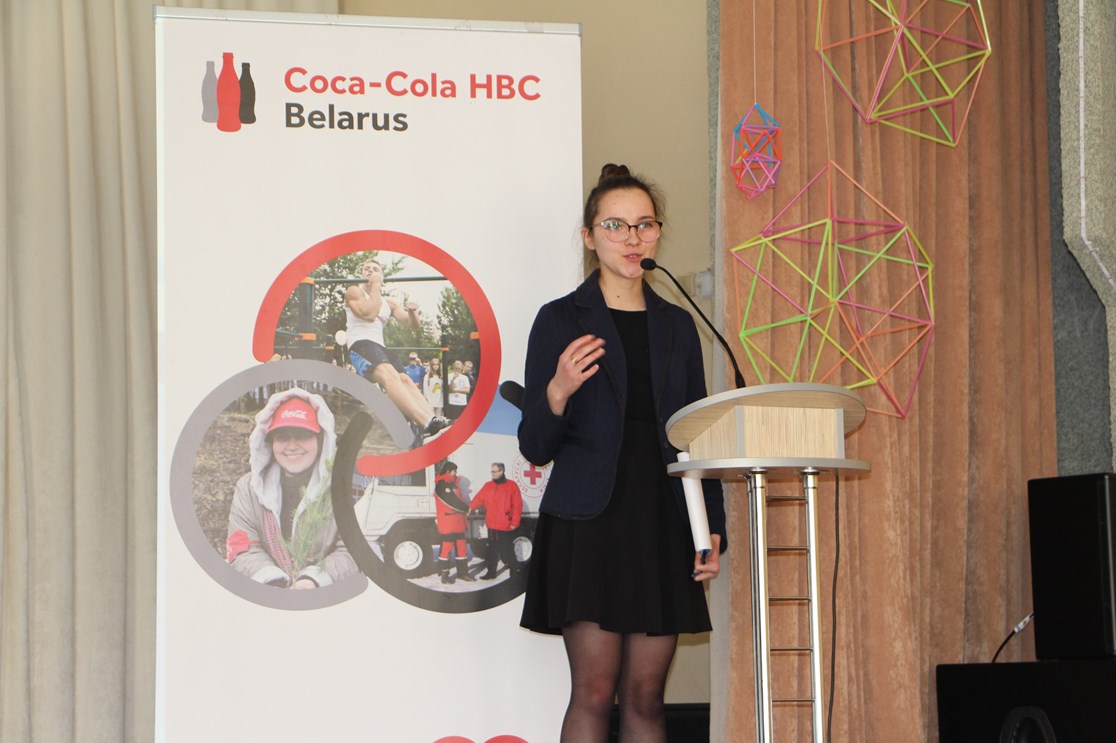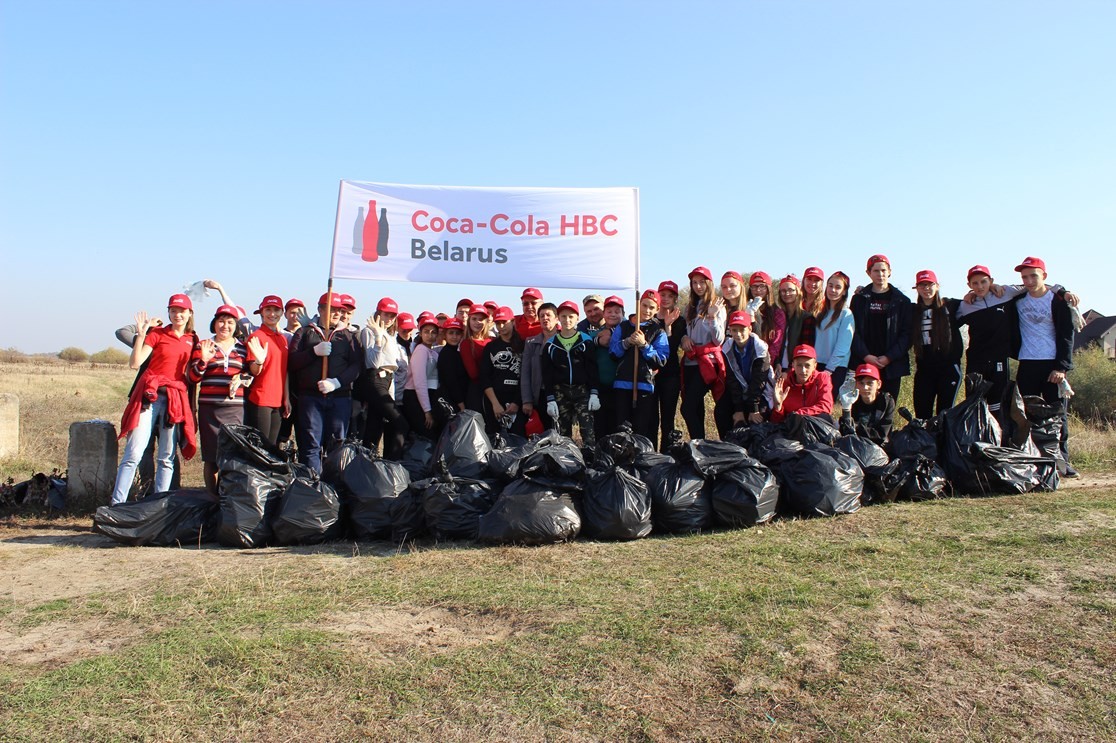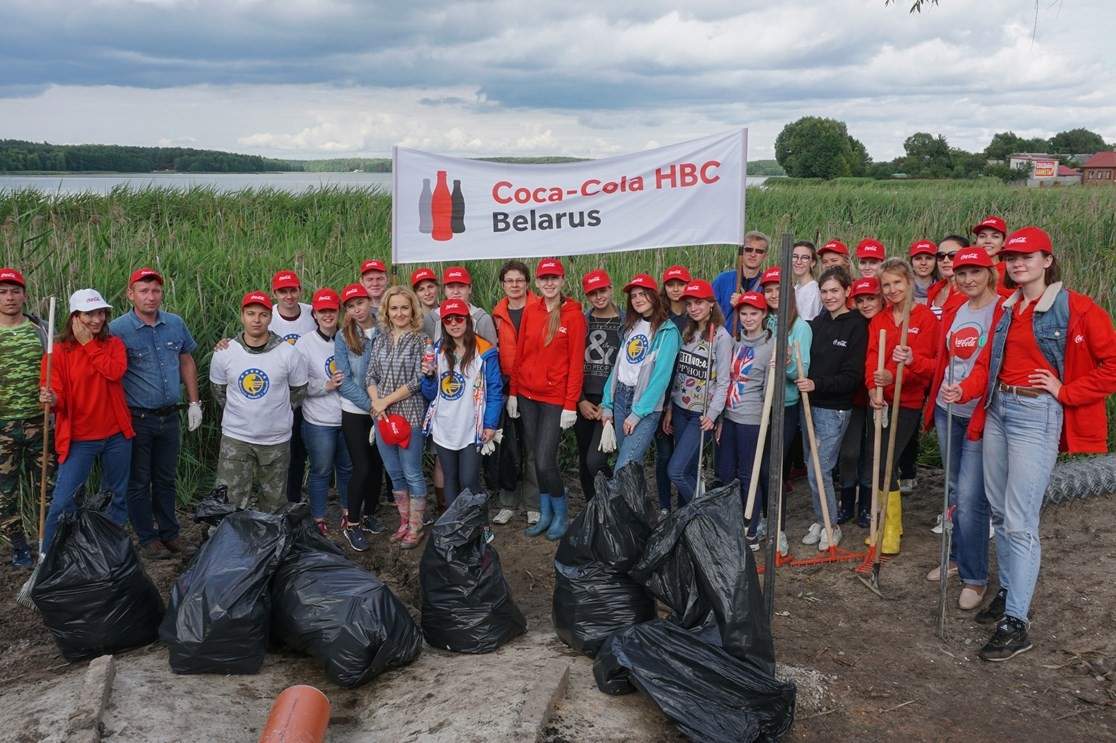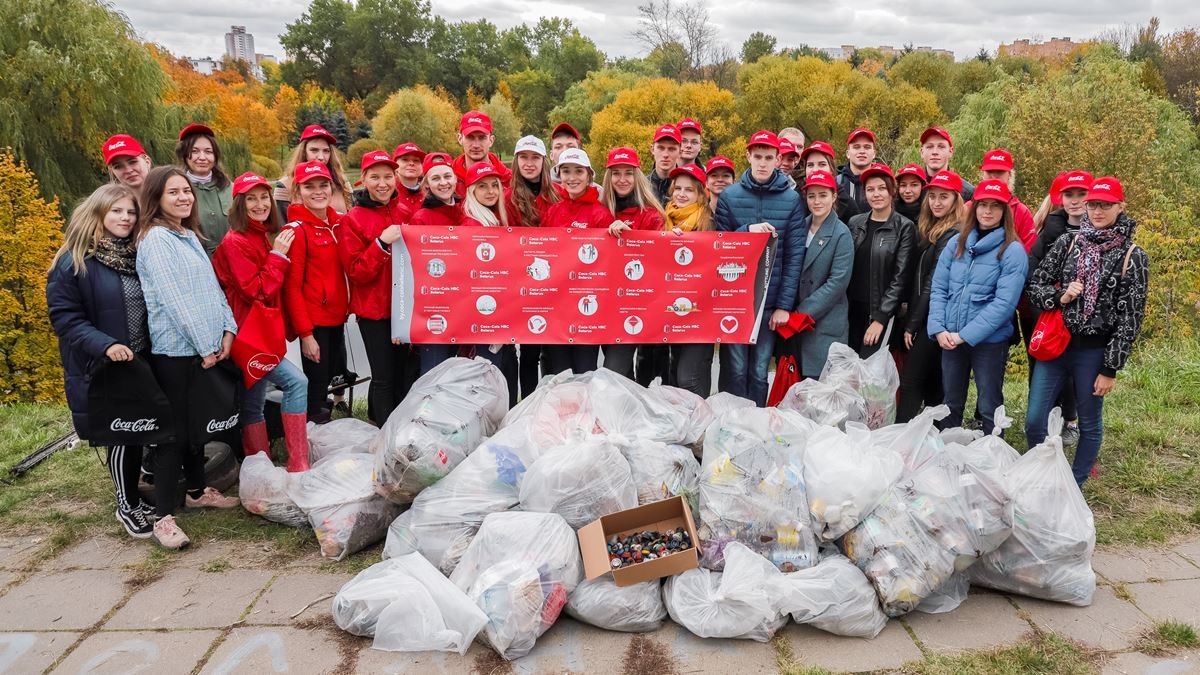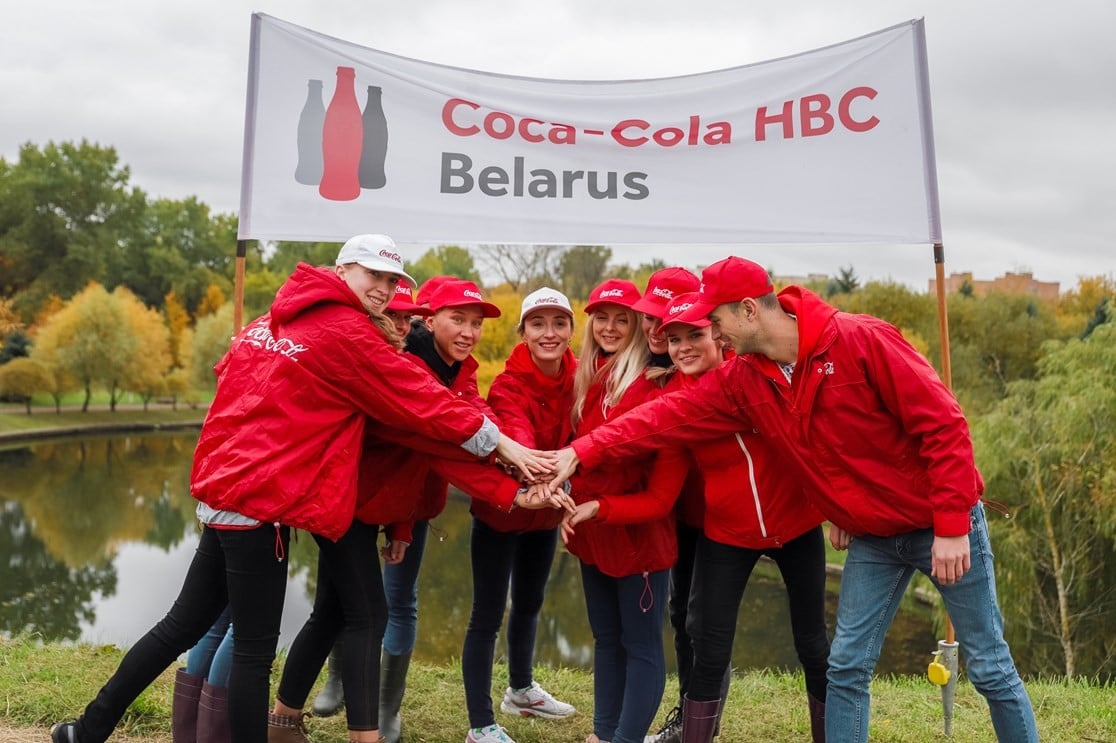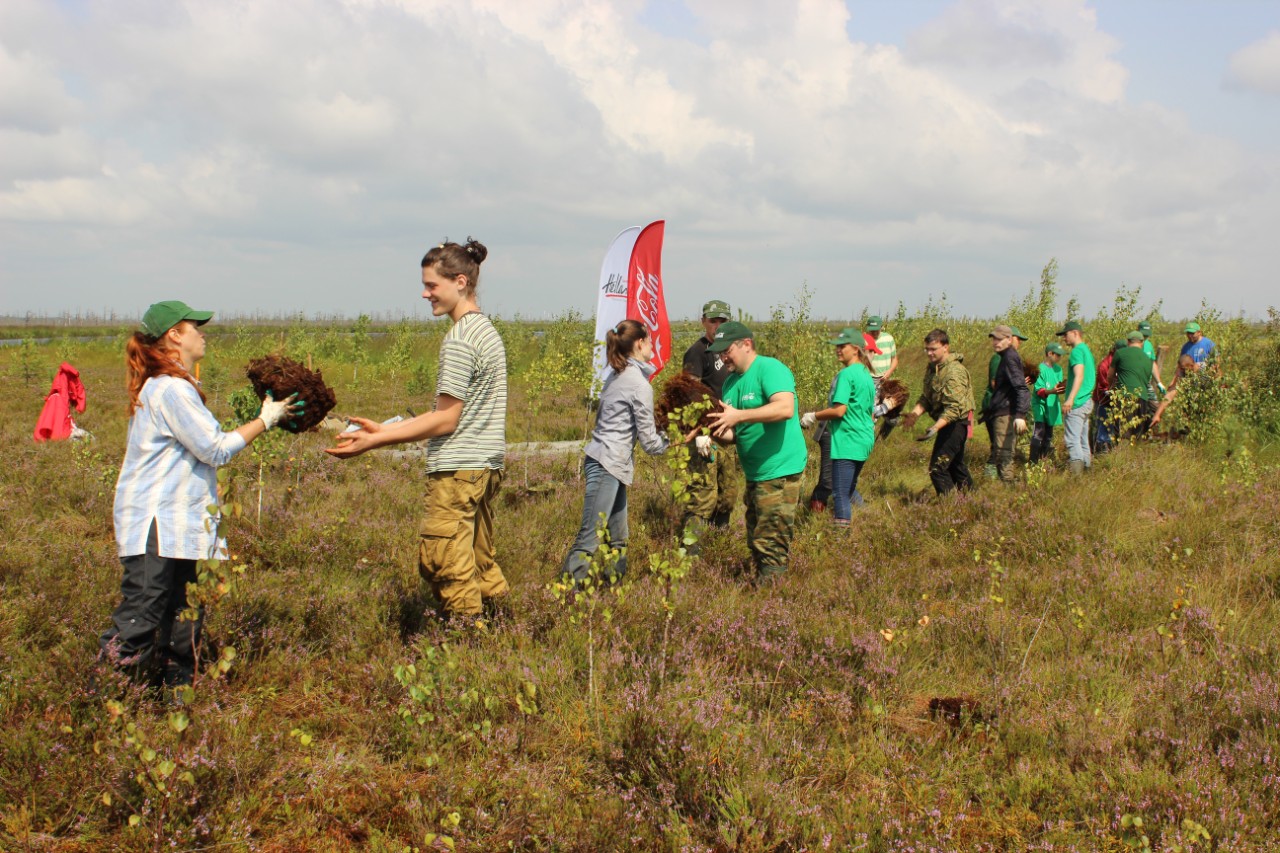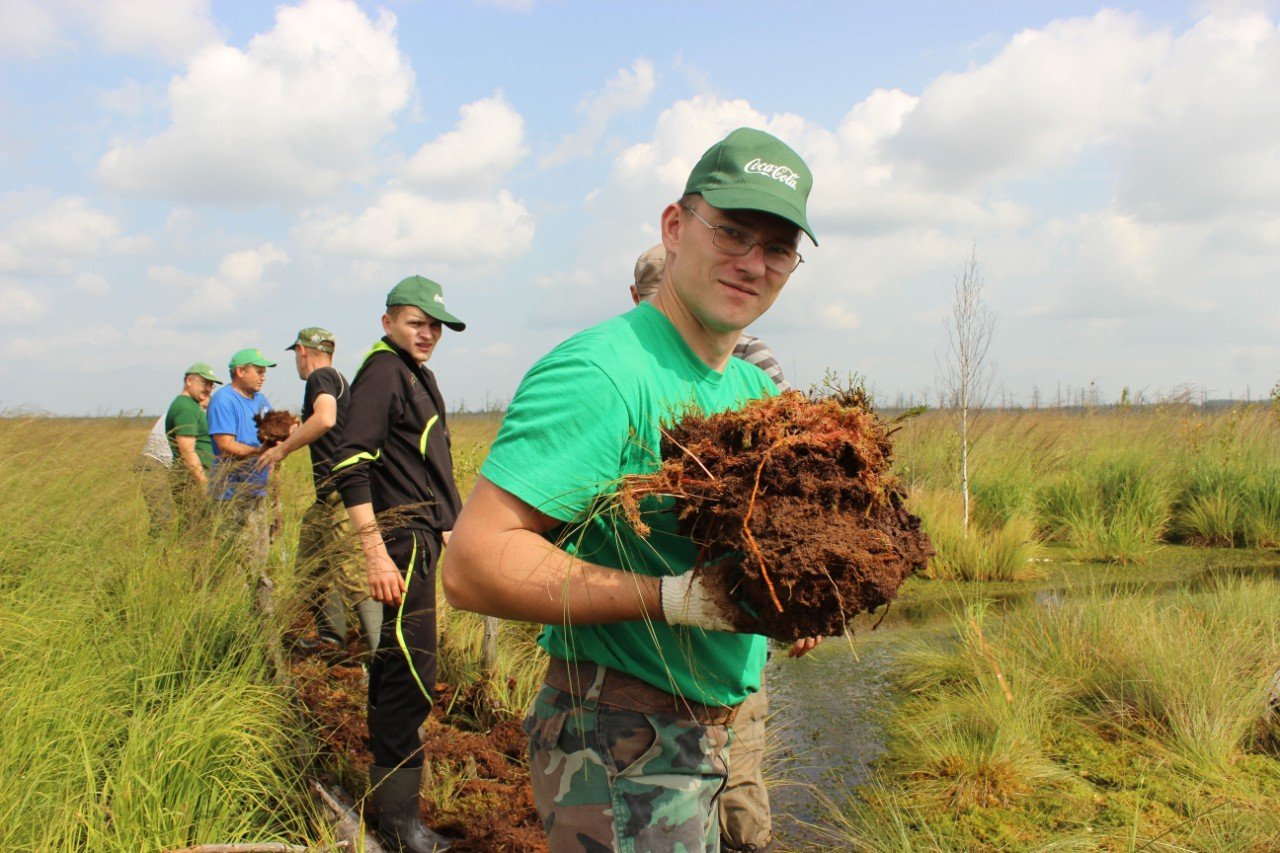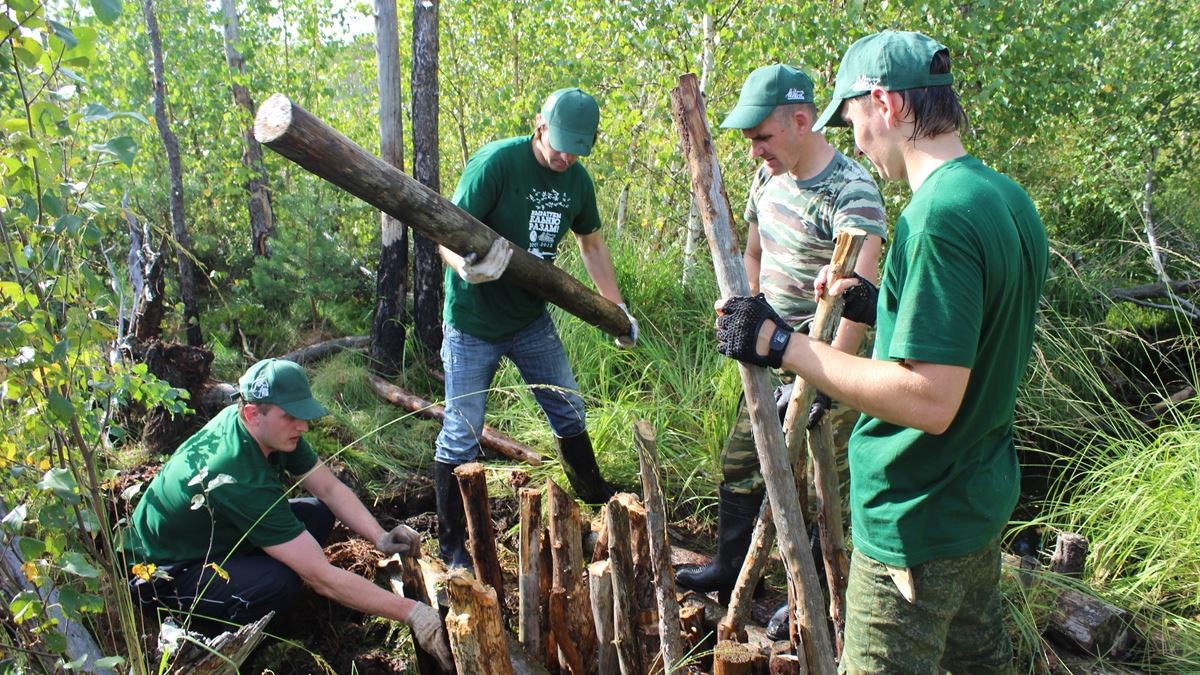In 2007, Coca‑Cola HBC Belarus started first restoration works at Yelnya bog. After the fire in 2002 which destroyed more than 70% of bog’s moss layer, it became obvious that recovery efforts should be implemented immediately before the real ecological disaster happens. Several volunteer camps were organised during the years to build dams, close the main drainage and raise water level in the bog and surrounding lakes. All the construction works were made manually due to the inability to use heavy equipment on wetland. More than 50 dams were built during the first part of the program. Due to the combined efforts of volunteers, local citizens and environmentalists there were no significant fires since 2008 and water level raised for 1 meter.
The fires were a serious cause for concern because the vast amounts of CO2 were discharged into the atmosphere. After the natural restoration, the bog will stop the emission of CO2 and start to absorb it. Since the Yelnya Bog covers the territory of more than 23 thousand hectares, it means that each year around 23 thousand tons of CO2 can be readily absorbed. This is equivalent to the total CO2 emissions from Coca‑Cola Hellenic’s plant in Belarus.
In 2015, within the frameworks of UNDP-GEF “Peatlands 2” project, implementation of 46 more industrial dams were constructed with the financial support of The Coca‑Cola Foundation. The monitoring of dams’ condition helps with scientific prognoses for further restoration of the bog.
The bog is the habitat for almost all species of flora and fauna that can be found at Belarusian upland bogs. Yelnya is an important place for migrating birds: 98 species live there permanently, 23 of which are included in the Red Book. In a strong belief that public attention is one of the most influential social forces Coca‑Cola HBC Belarus pays much attention to community awareness of Yelnya and other degraded peatbogs’ problem in Belarus. As a continuation of educational part of the project, the ecological center was opened in 2016 in local school in Germanovichi village in cooperation with Coca‑Cola HBC Belarus, UNDP and The Coca‑Cola Foundation.
